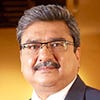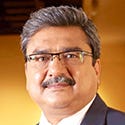There's no perfect model for building the perfect team, but all empowered employees need the following.

This year has seen its share of surprises globally with change being arguably the only constant in the new global workplace. The recent Global Human Capital Trends 2014 report from Deloitte notes that today's business environment is defined by disruptions in labor markets, evolving workforce demographics, shifts in technology, and the changing nature of work itself.
Within this vigorous environment, what does it take to build high-performance teams?
[Digital initiatives are where the action is. Read How IT Can Spur Digital Innovation]
Among the disruptive companies getting accolades for re-writing the rules of team-building is Netflix. A presentation given by Patty McCord, former Chief Talent Officer at Netflix, which described the company's talent philosophy, was termed by Facebook COO Sheryl Sandberg as "the most important document ever to come out of the Valley." It also attracted a whopping nine million views on Slideshare. In a Harvard Business Review(HBR) article early this year, McCord elaborated on the two overarching principles of the company's talent philosophy: "Hire only 'A' players and be willing to let go of people whose skills no longer fit, no matter how valuable their contributions had once been."
A rough and tumble work environment? Yes, but with immense freedom and responsibility. For instance, Netflix has no vacation policy nor does it track number of vacation days taken by employees. It emphasizes context, not control, as an important aspect of its work culture.
While Netflix's philosophy of hiring A players sits at one end of the spectrum, research conducted by MIT's Human Dynamics Laboratory reached a different conclusion. It found that individual intelligence or accomplishments are not the best predictors of productivity.
In an HBR article titled "The New Science of Building Great Teams", Lab Director and Professor Alex "Sandy" Pentland concluded, "Individual reasoning and talent contribute far less to team success than one might expect." Instead, according to this extensive study, team energy and engagement are what set high performing teams apart. All teams, at their very foundation, are relationship systems. So the best way to build a great team, according to this theory, is not to select individuals for their intelligence or accomplishments, but to learn how they communicate and shape the team so that it follows successful communication patterns.
Clearly, one size does not fit all. Each organization must find its own ideal mix of individual talents and team dynamics. While there may be endless debate on the ingredients that go into building a high-performing team, there are three essential elements that empower any team to navigate the highways of success.
Instilling tech intelligence
Undoubtedly, technology has dramatically changed the way we work and the skills we need. But we ain't seen nothing yet. To quote the latest McKinsey quarterly report, "In the years ahead, acceleration in the scope, scale, and economic impact of technology will usher in a new age of artificial intelligence, consumer gadgetry, instant communication, and boundless information, while shaking up business in unimaginable ways."
To survive in this scenario, everyone -- from board strategists to senior management to team managers to individual contributors -- will need to be a "technologist" to understand how specific technologies affect every part of the business. High-performing teams in any industry will need to be fluent in the fundamentals of data and technology. It's therefore essential for companies to unravel the technological maze for their people through classes, courses, and other learning tools.
Keeping your tech relevant
Consider your favorite apps. You constantly allow their upgrades on your smartphone so they stay relevant. Are you equally concerned about the relevance of your best people?
This idea was addressed recently by a young HCL employee on our internal social platform. He asked some very thought-provoking questions such as, "If you were an app, with what frequency would you upgrade/upskill yourself to stay relevant? Therein lies the answer to your growth." What a brilliant observation! In today's swiftly changing world, if we're not frequently investing in reinventing the skills, domain expertise, and knowledge of our people, they are at grave risk of being left behind in the talent development race. At HCL, we have a special app called "Career Connect" to help our employees constantly upgrade skills and even reinvent themselves.
Using the app, an individual can discover a new role in the company, trigger a career counseling discussion with HR, define developmental inputs required to achieve the role, create a Career Development Plan with customized training programs, and finally apply internally for a desired open position. Keeping training in sync with aspiration is perhaps the best method to encourage high performance.
Investing in 'ideapreneurs'
In a world propelled by new ideas, high performing teams must include "ideapreneurs." We coined this term to describe innovative thinkers who are self-driven like entrepreneurs and carry their ideas to fruition. Together they build a culture of innovation that's grass roots, focused on the customer, and driven by business goals.
Deloitte's research on Millennials shows that this generation has a relatively high desire to be entrepreneurial, to move into leadership roles, and to have the opportunity to innovate. Ideapreneurship allows them to do just that.
Today's work culture carries a premium on personal development. High performers believe in workplaces that invest in their professional development and give them constant opportunities to grow.
As such, to attract and inspire passion in the right kind of talent, companies need to transform themselves into autobahns that create perfect driving conditions for high performing teams to race at top speed – with pit stops along the way for regular refuelling.
Apply now for the 2015 InformationWeek Elite 100, which recognizes the most innovative users of technology to advance a company's business goals. Winners will be recognized at the InformationWeek Conference, April 27-28, 2015, at the Mandalay Bay in Las Vegas. Application period ends Jan. 9, 2015.
About the Author(s)
You May Also Like







